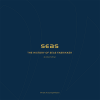Statius’ Thebaid and the Poetics of Civil War
This study focuses on ways in which Statius’ epic Thebaid, a poem about the civil war between Oedipus’ sons Eteocles and Polynices, reflects the theme of internal discord in its narrative strategies. At the same time that Statius reworks the Homeric and Virgilian epic traditions, he engages with Hellenistic poetic ideals as exemplified by Callimachus and the Roman Callimachean poets, especially Ovid. The result is a tension between the impulse towards the generic expectations of warfare and the desire for delay and postponement of such conflict. Ultimately, Statius adheres to the mythic paradigm of the mutual fratricide, but he continues to employ competing strategies that call attention to the fictive nature of any project of closure and conciliation. In the process, the poem offers a new mode of epic closure that emphasizes individual means of resolution.
• Illustrates the poetic design of an influential Roman epic • Analyses the poem’s rich intertextuality with a wide range of Greek and Latin literature, especially Homer, Callimachus and Virgil • Situates Statius’ epic in its historical context by considering its reworking of the Aeneid
ContentsIntroduction; 1. Gods, humans and the literary tradition; 2. Beginning; 3. Nemea; 4. Middle; 5. Heroic deaths; 6. End.
- Forlag: Cambridge University Press
- Utgivelsesår: 2007
- Kategori: Teori
- Lagerstatus: Ikke på lagerVarsle meg når denne kommer på lager
- Antall sider: 214
- ISBN: 9780521867412
- Innbinding: Innbundet











